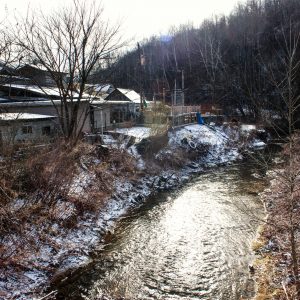The Stream, March 1: Papua New Guinea Earthquake Flattens Villages, Dirties Water Sources
The Global Rundown
A magnitude 7.5 earthquake flattens villages and spoils water sources in Papua New Guinea. A delayed disaster relief loan threatens to disrupt essential services in hurricane-hit Puerto Rico. Cape Town’s homeless population struggles to find water amid tightening usage restrictions. Mexico City works to improve its water supply, air quality, and earthquake preparedness. A proposed Michigan bill could make large-scale groundwater withdrawals easier for farms and businesses. Creating more jobs is crucial for protecting Lake Chad and addressing the region’s humanitarian crisis, UNESCO claims.
“It’s massive destruction. There are buildings on the ground and landslides along the roads. My home was destroyed. The main sources of water were all flooded, it’s dirty and brown and people can’t drink that water.” –Stanley Mamu, a resident of Tari, Papua New Guinea, in reference to a magnitude 7.5 earthquake that rocked the Pacific island nation on Wednesday. Rescuers are struggling to reach the hardest-hit areas, where landslides reportedly wiped out entire villages. The New York Times
Latest WaterNews from Circle of Blue
Straight Pipes Foul Kentucky’s Long Quest to Clean Its Soiled Waters – A two-decade mission to reduce sewage pollution still has a lot of work to finish.
Booming Infrastructure Poisons Bangalore’s Lakes, Depletes Groundwater – Bangalore’s largest lake is so contaminated that it routinely catches fire. Officials are unsure how to contain the city’s pollution.
By The Numbers
700+ Number of homeless people sleeping in Cape Town’s city centre, according to a 2015 survey. Most of Cape Town’s homeless rely on public facilities for drinking water and bathing. As the city’s water restrictions tighten, service is being cut off at many of these facilities, forcing many homeless people to beg for water. News24
In context: Circle of Blue’s coverage of Cape Town.
$4.7 billion Amount of post-hurricane disaster relief that the U.S. Congress approved for Puerto Rico in October. Four months later, Puerto Rico has yet to receive the loan. In a letter to U.S. lawmakers, Governor Ricardo Rossello warned that essential utilities such as electric, water, and sewer could be cut off if the loan is not paid out soon. The New York Times
Science, Studies, And Reports
Creating more jobs in the volatile Lake Chad region is crucial for preserving the lake and quelling the humanitarian crisis in the region, according to UNESCO officials. UNESCO claims that providing jobs related to Lake Chad will boost incomes and encourage better stewardship of the depleted waterbody. Reuters
In context: International conference discusses remedies to Lake Chad crisis.
On The Radar
Five months after a deadly earthquake shook Mexico City, city officials are writing a new emergency response plan to help better prepare the metropolis. Mayor Miguel Angel Mancera said the city hopes to build its resiliency by increasing preparedness, dealing with chronic water shortages, and improving air quality. Reuters
In context: Floods and water shortages swamp Mexico City.
A bill proposed in the Michigan House of Representatives could make large-scale groundwater withdrawals easier. Currently, groundwater withdrawal requests are evaluated by the Michigan Department of Environmental Quality (DEQ). The bill would allow farms and businesses to bypass the DEQ as long as they submitted an expert analysis showing that the withdrawal would not negatively affect streams and fish. Detroit Free Press
Kayla Ritter is a recent graduate of Michigan State University, where she studied International Relations and Teaching English to Speakers of Other Languages. She is currently based in Manton, Michigan. Kayla enjoys running, writing, and traveling. Contact Kayla Ritter





